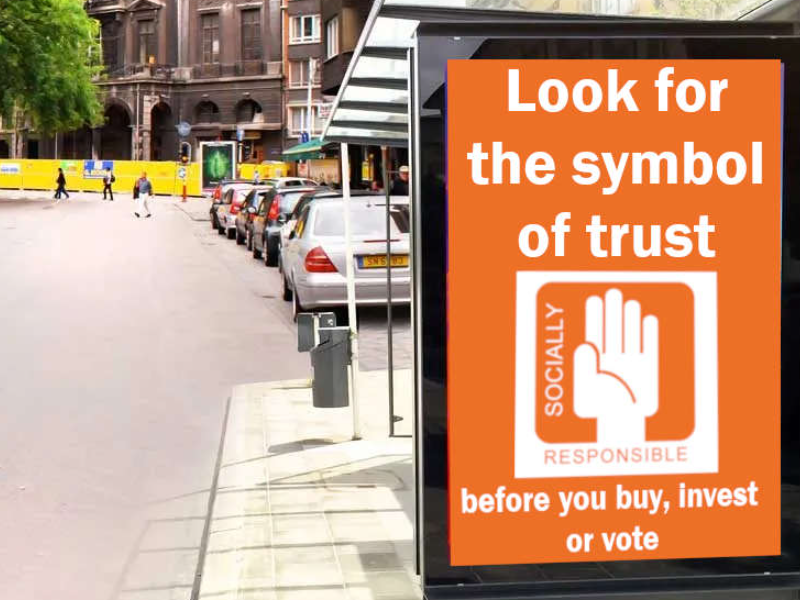Beyond ESG: Why Business Must Invest in Social Capital
How the Global Social Capital Fund offers a practical, post-ESG model for businesses to restore trust, strengthen society, and stabilize the global economy.
In recent years, businesses have embraced ESG—Environmental, Social, and Governance standards—as a way to signal responsibility beyond profit. Yet despite the marketing, ESG has often failed to deliver meaningful change. Too often it amounts to a cosmetic exercise—public relations without reform—leaving the world’s most urgent challenges untouched.
The reality is this: ESG is not enough. We are entering a new era—post-industrial, post-truth, post-trust—where fragmentation, inequality, and disinformation threaten the foundations of our economy. What’s needed now is a redefinition of business responsibility: not just to shareholders, but to society itself.
Enter the concept of business social capital responsibility, embodied in the Global Social Capital Fund (GSCF).
Why Social Capital Matters
Every business relies on an ecosystem of trust: trust between employees and management, between brands and customers, and in the integrity of contracts, data, and supply chains. This invisible currency—social capital—makes commerce possible.
But social capital is eroding. Trust in institutions is collapsing. Disinformation and social division are rising. Regulators cannot reverse this trend alone, and ESG frameworks are too limited.
A deeper solution is needed—one that doesn’t just measure harm but actively rebuilds the social fabric.
The GSCF: A Practical, Scalable Solution
The Global Social Capital Fund offers a next-generation model for business accountability. Funded by a modest 1%–2.5% levy on corporate revenue, the GSCF directs resources into the non-profit sector—the true engine room of global social capital.
This is not about abandoning profit. Businesses already spend 5–15% of revenue on advertising and customer retention. Redirecting a fraction of that toward strengthening civil society is not only viable but strategic.
Built into the Powered by Trust (PByT) platform, the GSCF is governed by verifiable, reputation-based feedback systems. Participating companies earn a symbol of trust—an indicator that consumers, investors, and partners can use to make value-aligned decisions.
Why Businesses Will Participate
Skeptics may ask: Why would companies volunteer?
The answer is simple: market logic. Consumers increasingly prefer businesses aligned with social and environmental values. Companies that join the GSCF will outperform peers who resist. Governments can accelerate this trend through tax incentives for participants and penalties for holdouts.
This is not charity—it is self-preservation. In moments of crisis—health, environmental, or political—businesses need stable societies to function. The GSCF provides resilience against such shocks without relying on bailouts or distortive subsidies.
From Trickle-Down to Trickle-Up Prosperity
The GSCF also marks a rejection of failed trickle-down economics. Prosperity does not automatically flow from corporate growth to social wellbeing. Instead, the GSCF adopts a “trickle-up” model: by investing in the most vulnerable, it strengthens the very foundation on which the global economy rests.
With global economic output nearing $100 trillion, even a 1% levy could generate over $1 trillion annually for social investment. This could reshape global dynamics—incentivizing peace, discouraging corruption, and offering alternatives to sanctions and armed conflict.
A Paradigm Shift in Business Thinking
The GSCF is more than a funding mechanism. It represents a philosophical reset:
- From minimizing harm ➜ to maximizing shared value
- From image management ➜ to systemic accountability
- From reporting on impact ➜ to creating it
It repositions business not as a bystander to societal collapse but as an active steward of collective wellbeing.
A Paradigm Shift in Global Relations
A GSCF worth trillions would also give the international community a new tool for dealing with rogue nations—one more effective than sanctions or embargoes. It could:
- Curb the actions of belligerent leaders
- Deter corruption, oppression, and rights abuses
- Resolve trade disputes without destabilizing economies
This represents a profound shift in global relations—toward peaceful coexistence, economic stability, and shared prosperity.
Expanding the Role of the International Criminal Court
Access to the fund would be limited to nations that are both functioning democracies and signatories of the International Criminal Court (ICC).
More than 120 nations are members, but major powers like the U.S., China, India, Russia, and Israel are not. By linking access to ICC membership, the GSCF reinforces global accountability: leaders in non-signatory nations would know their actions remain subject to international scrutiny.
A Trillion Reasons to Tackle Climate Change
Eligibility would also depend on commitment to the Paris Climate Agreement. To access the fund, nations must commit to emissions cuts of 43% by 2030 and net zero by 2050—to keep warming below 1.5°C.
This alignment ensures the GSCF not only strengthens democracy and justice, but also drives urgent climate action.
Conclusion: A New Role for Business in a Post-Everything World
We can no longer treat business and society as separate. The health of the global economy is inseparable from the health of communities.
The Global Social Capital Fund provides a path forward: practical, measurable, and aligned with market realities. It transforms corporate responsibility from aspiration into infrastructure—one capable of restoring trust, stabilizing economies, and renewing global cooperation.
This is not the end of capitalism. It is capitalism finally growing up.



